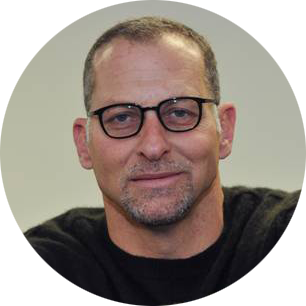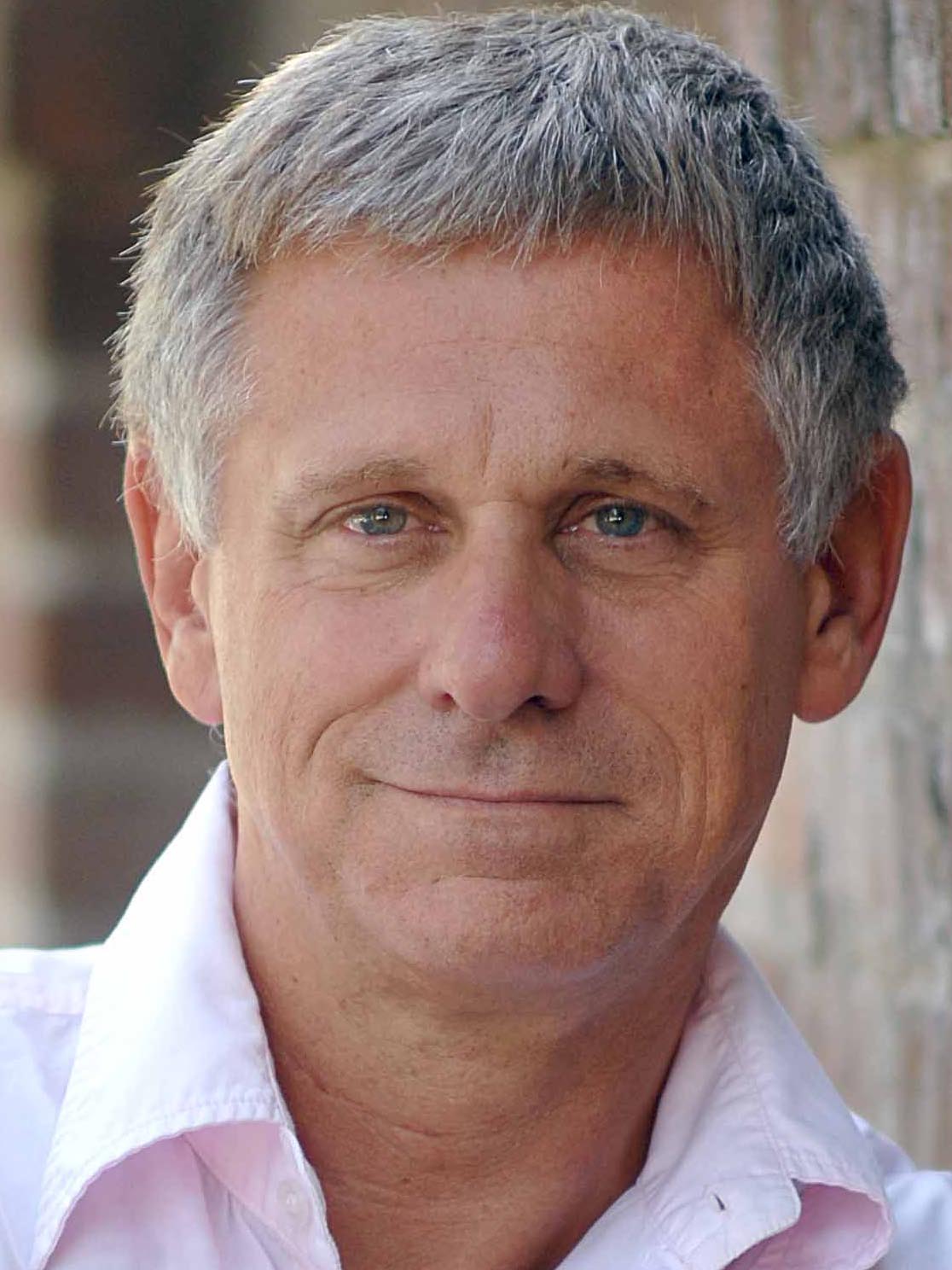
Credit: Davide Trolli/Shutterstock
Ever wonder what it’s really like to be a doctor? Physicians in all sorts of niches help to keep people everywhere healthy and do everything from comforting kids with the common cold and helping women give birth to handling emergency situations and treating terminal illnesses. As with every profession, there are pros and cons — saving lives is rewarding, but there are downsides, too.
Business News Daily asked doctors to share what they love and hate about their jobs. Here’s what seven physicians — from primary care doctors to oncologists — revealed.
Dr. Thomas Chacko, allergy, asthma and sinus doctor
Business News Daily: What do you do?
Dr. Thomas Chacko: I am an allergist in Atlanta, Georgia. As an allergy [and] asthma doctor, I take care of both children and adults with allergies, including food allergies, sinus problems, asthma [and] hives, as well as many other conditions.
BND: What do you love most about your job, and why?
Chacko: I like that I get to know the patient’s whole family, as allergies are often hereditary. [It’s] fun to help patients get better. I love that I get to make people’s quality of life better, which can be pretty gratifying.
BND: What do you hate most about your job, and why?
Chacko: I don’t like the insurance battles or the way medicine is becoming a business. Many small practices have to consolidate, as the costs are too high to be independent. Also, there are so many regulations that need to be followed. Those add time to the day, where I’m not sure I see much benefit to the patients.
Dr. Ashley Sumrall, neuro-oncologist, Carolinas HealthCare System
Business News Daily: What do you do?
Dr. Ashley Sumrall: I am a neuro-oncologist in Charlotte, North Carolina. I work for Carolinas HealthCare system and have clinics for brain tumor patients in Charlotte and Charleston, South Carolina. I have a clinical practice but also teach medical students, residents and fellows. I am involved in conducting and developing research projects for patients with brain tumors.
BND: What do you love most about your job, and why?
Sumrall: I have a unique career because I am honored to meet people just after they are diagnosed with a terminal illness. My patients welcome me into their lives when they are most vulnerable. Together, we work to fight their cancer and keep their lives as pleasant and meaningful as possible. This makes my career both emotionally and intellectually fulfilling. Much of the science involved in treating brain cancer is innovative, so researching our new therapies is rewarding.
BND: What do you hate most about your job, and why?
Sumrall: The worst part of my job is dealing with loss and suffering. Despite years of experience, it never becomes easier. Another significant drawback is the never-ending documentation requirements. Much of the humanism of my field has been replaced by clicking boxes and typing.
Dr. Jason James, obstetrician/gynecologist and medical director, FemCare Ob-Gyn
Business News Daily: What do you do?
Dr. Jason James: I’m an obstetrician/gynecologist in Miami, Florida.
BND: What do you love most about your job, and why?
James: I love my job because it allows me to take care of patients across the continuum of life. From delivering a newborn, to a teenage young lady going through puberty, an adult navigating pregnancy and menopause, to a woman in her 90s managing the symptoms that accompany older age, I am privileged to be able to care for women throughout their life span. I deal primarily with healthy people, happy events and preventative care. I see my patients year after year, watch them grow and celebrate milestones with them. Additionally, I get to practice a little internal medicine, a little surgery, a little of just about every profession without losing the continuity of care that we hold so dear.
BND: What do you hate most about your job, and why?
James I hate [that I’m] sometimes spending more time writing notes, coding visits and documenting informed consent and warding off liability than I do talking to my patients. I hate chart audits and insurance negotiations and waiting on hold to get medical authorization for a procedure I clearly think a patient needs. I hate worrying about rare complications or diagnoses and practicing defensive medicine instead of taking care of patients the way I would want to be cared for. [Health Entrepreneurs Extol Virtues of Tech-Life Balance ]
Dr. Joseph Barry, primary care doctor, SignatureMD
Business News Daily: What do you do?
Dr. Joseph Barry: I work as a primary care doctor in Camillus, New York, where I have a split practice of personalized care medicine [and] concierge practice, and also co-manage a traditional practice using nurse practitioners.
BND: What do you love most about your job, and why?
Barry: What I love about my career is the relationships with people. I can mix science and psychology together to hopefully make a difference in patients’ lives. I love following people over time and seeing how they age and helping them go in the right direction — helping them see there is, in fact, a right direction and many wrong directions. Taking care of families is very rewarding to me. I feel a duty and obligation to steer people towards their best selves. I have been very lucky to work in a small group practice, where I have control over the number of patients I see and what I charge them. I like being my own boss, or rather having many patient bosses — not just one or two administrator bosses.
BND: What do you hate most about your job, and why?
Barry: What I hate about medicine [is actually] two things. One is the hassle factor: higher overhead, more nonsense computer forms to check off [and] fill out, prior authorizations, explaining the need for expensive testing — which I have no control over the charges — to someone over the phone who clearly doesn’t have the education to understand the issues, [and] not [having] enough time with patients — certainly not enough time to really make a difference in their lives, their habits and their health. The other part about my career that I hate is that we don’t have better tools to help motivate people. Everyone knows that they should quit smoking, lose weight [or] exercise more, but how do you convince them? How do you motivate them? Doctors are lousy motivators — it’s a combination of lack of training and perhaps a lack of interest, but my most important job as a primary care doctor has to be educating and motivating patients to change their behavior, and hence their health.
Dr. Steve Heffer, physician and urgent care clinic owner and operator
Business News Daily: What do you do?
Dr. Steve Heffer: [I’m a] veteran emergency room physician who now owns and operates urgent care clinics in Connecticut. I got into the urgent care business because I recognized it was the best way to help people who are not getting direct access to health care.
BND: What do you love most about your job, and why?
Heffer: I love what I do because I am helping people prolong, or sometimes even save, their lives. I am providing this community with a source of help they otherwise would not get. You do not often see urgent care centers in the inner city. I work with my staff to make an impact almost daily. I get excited when I see patients react to our facilities. From the outside, it looks like a bank; once [patients are] inside, they see a medical center hopping with activity, and most importantly, they see people getting the help they need and desire for their community.
BND: What do you hate most about your job, and why?
Heffer: I do not like the uncertainty that is so prevalent today in the health care industry. A lot of doctors are leaving because it is becoming too difficult to practice. The environment is overwhelming — the change, the bureaucracy involved with the practice of medicine is leading many older physicians to early retirement, and they are the ones with the experience, history, knowledge needed to diagnose on a level young, new doctors cannot. The industry is much more money-oriented than in the past. There needs to be a balance. Uncertainty leads to uneasiness. [These are] all reasons why I chose to take the urgent care route. I can provide care based on what I’ve learned and do it my way.
Dr. Pamela D’Amato, interventional pain management doctor, University Spine Center
Business News Daily: What do you do?
Dr. Pamela D’Amato: I am currently in a private practice and I practice interventional pain management. I work [at a] practice in New Jersey called University Spine Center.
BND: What do you love most about your job, and why?
D’Amato: I love my career because I work for an amazing practice [that] specializes in diagnosing and treating disorders of the spine. I work with spinal surgeons, and I love the team effort of our work. I love that my specialty can eliminate pain and improve patient lives. I enjoy that my practice allows me to have direct patient contact through an office-based practice while still allowing me to perform procedures.
BND: What do you hate most about your job, and why?
D’Amato: The difficulty finding a [balance] between family and work, particularly during the training years. Another disadvantage is that my profession as a pain management physician can attract drug-seeking patients; however, I’m lucky enough to be in a practice that discourages that behavior.
Dr. Edna Ma, anesthesiologist
Business News Daily: What do you do?
Dr. Edna Ma: I am a full-time anesthesiologist in Los Angeles.
BND: What do you love most about your job, and why?
Ma: I enjoy that I have a discrete task and am a critical team member in helping people get better. At the end of the day, I really do feel like I helped people. It sounds like a cliché, but I enjoy working with bright surgeons, caring nurses and meeting new people [and] patients. I like being a physician, but being in patients’ lives for only a defined period of time, as opposed to primary care, where some problems take multiple visits or years to resolve.
BND: What do you hate most about your job, and why?
Ma: One of the frustrating aspects is declining or refusal of reimbursements from insurance providers. It puts me, as a physician, in an awkward position if I have to ask for payment before sedating a patient. Can you imagine if your doctor said to you, on the day of your colonoscopy, “I know you’ve spent the last two days clearing out your bowels — all night sitting on the toilet — but before I sedate [you], I will need to collect $200.” That’s a terrible situation for [both the] patient and the anesthesia provider.

